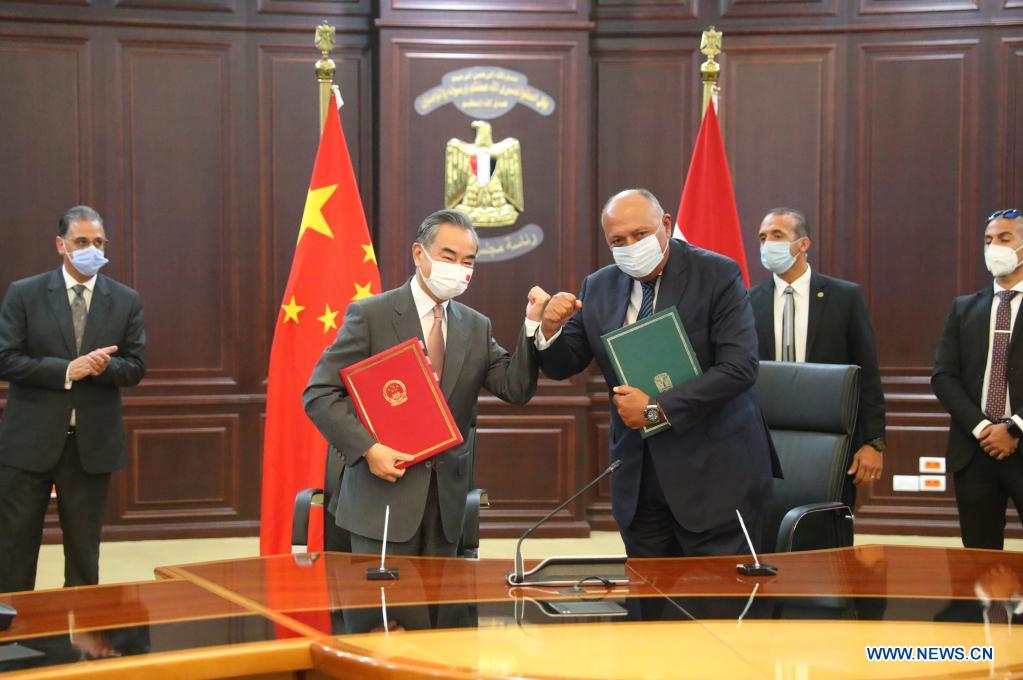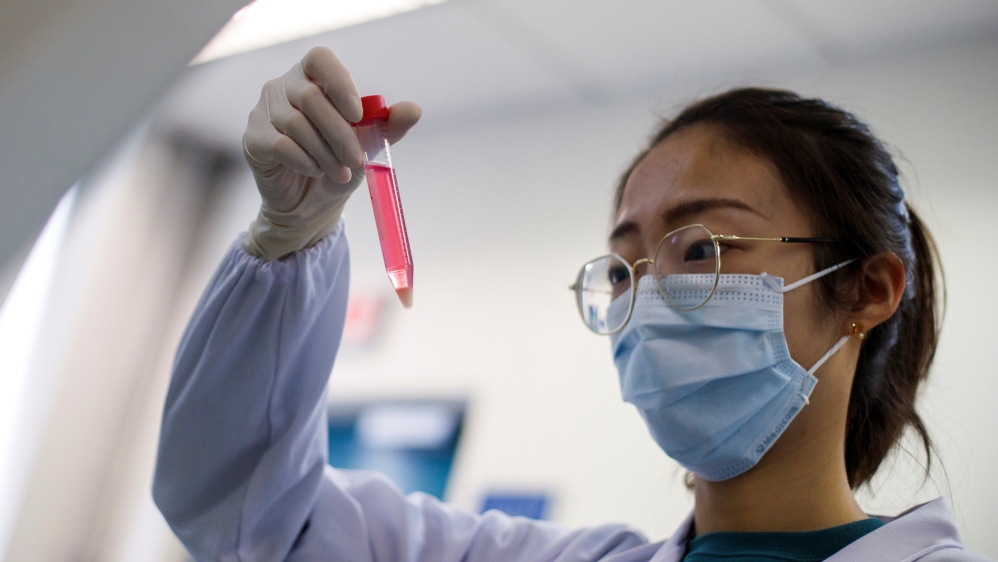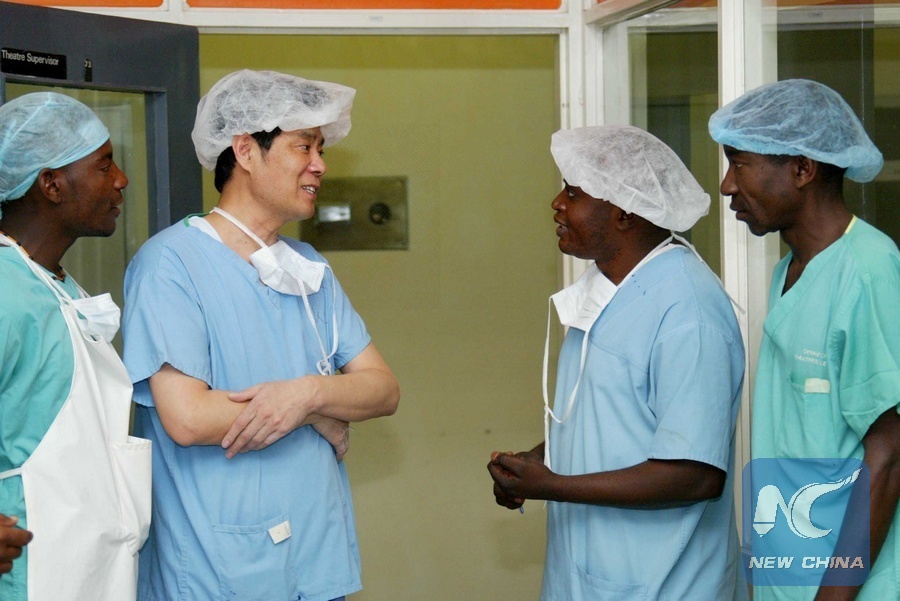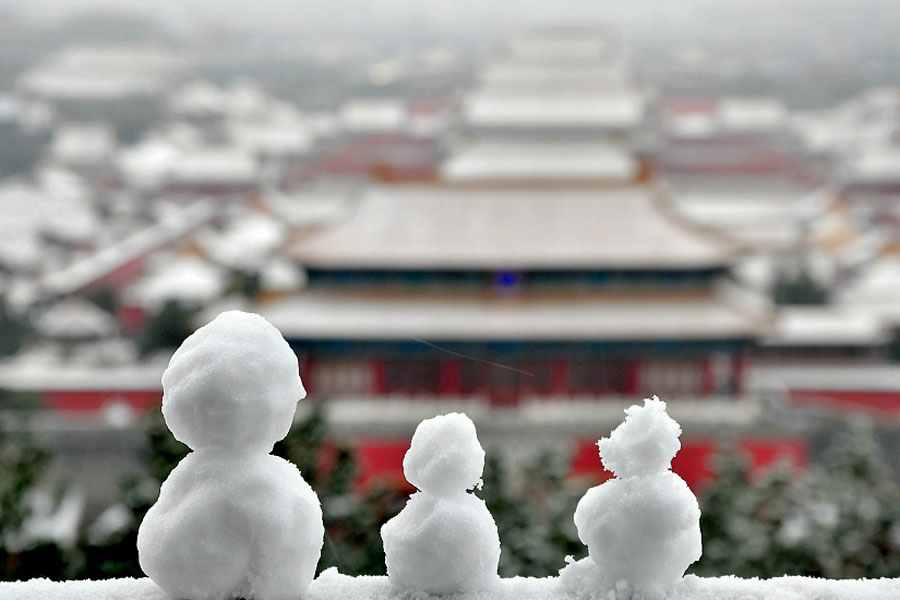Year of the Ox 2021: COVID-19 Vaccines and China’s Role on Global Health Cooperation
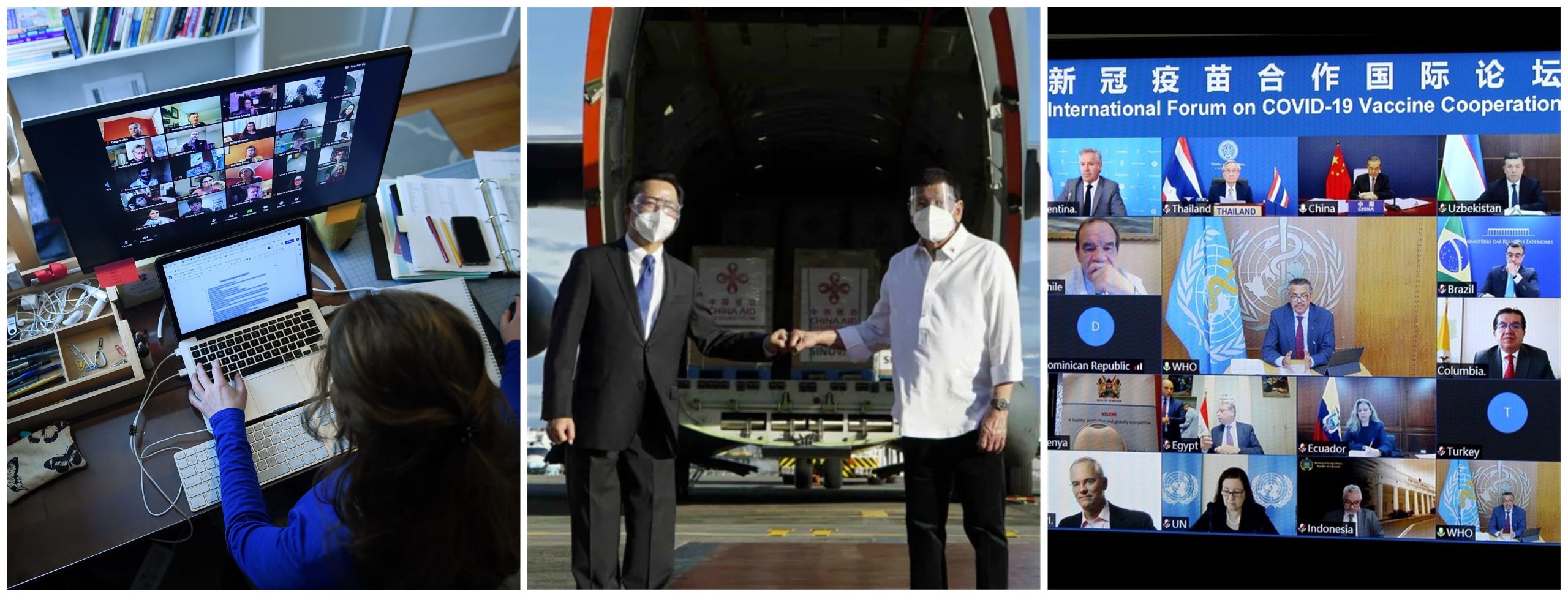
Source: Getty, AP, Official Twitter Account of the Foreign Ministry of Sri Lanka
January 28, 2022 | By Andre Shen, Founder and CEO, Bridge Consulting
According to the Chinese Zodiac (known as ‘Sheng Xiao’ 生肖), this passing year was the year of the Ox – also my Chinese zodiac year of birth. However, in Chinese folklore, it is a known superstition that people’s animal year is actually an unlucky year for those born in that particular year. Hence why it is also called Threshold Years, meaning a year with a lot of difficulties in life.
I don’t typically believe in such superstitions, but somehow, the past year was truly a threshold year for me as the CEO of Bridge Consulting – full of hurdles, but at the same time, full of opportunities:
At the start of the year, we moved office to a smaller space and sadly had to cut some full-time employees down to part time to reduce the rental and overhead costs. In March, we launched a new initiative to track China’s COVID-19 vaccine delivery around the world. Exceptionally, our data and analysis from it continues to be cited by many influential media outlets and think tanks. As I was appointed by the Coalition for Epidemic Preparedness Innovations (CEPI) in September as their representative in China, our company now has the privilege of working with all the co-leads of COVAX – the World Health Organization (WHO), Gavi, the Vaccine Alliance (Gavi), and CEPI. The main task of this new role entails to increase CEPI’s presence here and assist in seeking cooperation and collaboration with China in the prevention and control of pandemic diseases.
But looking at the past year, what gives me the greatest pain is how unequal we’ve seen the global COVID-19 vaccine rollout to be. Time after time, we’ve seen calls for increased vaccine distribution to the Global South, yet new outbreaks and variants have shown countries and manufacturers’ failures to respond adequately to those calls. That’s why we, as a mission-driven company, want to work even more closely with our clients and partners to address the vaccine equity issue this coming year.
As I ponder on my thoughts for 2021 and the impacts that the pandemic has had, here are some observations that I’d like to share with you:
Remote Work
On the topic of work, the pandemic has led to changes for many companies with the emergence of remote work. In some countries, working from home has even become a norm after continued lockdowns and restrictions. However, for us, and indeed for many in China, this has not entirely been the case.
At the start, our office was located in the heart of the Embassy Area neighborhood of Beijing. As I wrote earlier, we moved to a new location further South to save rental cost, which also meant that most employees would have to spend more time commuting. We had internal debates on whether the company should allow staff to work from home and come to the office for meetings as needed. Due to several reasons, I made the decision not to give people this flexibility which partly led to the unfortunate resignation of a very competent employee.
First of all, thanks to the effective epidemic control measures in China, over the past year we’ve mostly seen sporadic outbreaks that are by and large controlled. So unlike other countries, people don’t have an obligation to stay at home to avoid virus transmission.
Secondly, as a small-size start-up, although we have job descriptions for every staff member, we need our staff to take an entrepreneurial mindset and skillset into their work. This requires a lot of communication, coaching and mentoring, especially for junior level staff. That kind of spontaneous interaction can be challenging to achieve through remote working.
In addition, not everybody has a home that is suitable for productive office work. For instance, my wife is a musician, and she practices her instrument at home almost every day. I can be easily distracted when she’s playing the instrument. Needless to say, this would be even more difficult for several of our colleagues who have very young children at home.
Based on a general observation of China’s current work climate, the majority workplaces still require people to come to work in the office. Since the outbreak, while there has been an increase in the number of people who work online, remote work is estimated to be applicable to only 1% of the working population in China, last estimated to be 9 million in 2020. Most recently with the surge of new outbreaks across major metropolis like Tianjin and Beijing, there has been a renewed push to implement remote working and limit employees from commuting, especially across provinces or cities.
As nearly two years of tight border restrictions have helped China keep the spread of COVID-19 under control, unlike most employers in North America and Europe, employers in China do not need to frequently change their return-to-workplace plans. However, some of them (including myself) are facing a growing shortage of foreign talent in China.
2021 witnessed a sudden outflow of foreign talent from China. At the onset of the pandemic outbreak, there was a voluntary exodus by many foreigners (professionals and students) who travelled to their home countries to escape the outbreak. But following the effective pandemic controls in China and the unfortunate outbreak in most countries around the world, Chinese authorities opted for a zero-covid policy which meant very strict border restrictions for incoming travelers. Due to such ongoing measures, student and most work visas are still on hold, barring many expats from re-entering the country.
This has affected many multinational companies’ local operations and hindered their retainment of foreign staff in China. It also partly contributed to the exit of two of my own foreign staff during the pandemic period. But even prior to the pandemic, the American Chamber of Commerce said that over a decade “number of foreigners in Beijing had fallen by over 40%, from 100,000 previously to 60,000 since 2010”. To conclude, in the context of post-COVID-19, China will have to consider or introduce new incentives and policy changes to attract back such necessary talent.
China's COVID-19 Vaccine Outreach
Outside of disrupted work life for most of us, this year has got to be the year of vaccines. 2021 marked significant progress in the development, roll out and study of COVID-19 vaccines worldwide. In particular for us, as a Beijing-based company concerned with global health, we noticed an increasing curiosity and perhaps, misconception surrounding Chinese vaccines overseas. After posting a few tweets on Chinese vaccine donations delivered worldwide that turned viral, we decided to create a functioning Vaccine Tracker on our website with detailed maps, regional breakdowns, manufacturer dissections and even COVAX deliveries. Our goal was to provide a fact-based source that would inform and even drive forward conversation on China’s role in the COVID-19 vaccine landscape.
As we developed it, our data has continuously been cited by news media around the world, ranging from the New York Times, to Reuters, South China Morning Post, Quartz Africa and more. It has also been used in more professional publications such as Duke University’s Launch and Scale Faster Vaccine Tracker and The China Africa Project’s member-only newsletter. Besides these media mentions, we also have received a number of enquiries from researchers and students and have shared our raw data with them to facilitate their studies.
As for the data itself, as of mid-January 2022, we’ve seen 1.38 billion Chinese doses delivered worldwide. Over 2.96 billion doses have been administered domestically, meaning over 83% of Chinese population has been vaccinated fully.
Internationally, reception towards these vaccines have been a mixed bag. In Western media, the term ‘vaccine diplomacy’ has been used widely to critique China’s supposed strategy of preferential giving vaccines to countries who support their foreign policies. Many have also contended with Chinese vaccines’ lack of efficacy. This has spilled over to affect reception from receiving countries of these vaccines, with some pivoting away for use of Chinese vaccines, though with others continuing to deepen cooperation.
Earlier on in the pandemic, many countries had desperate need of vaccines, of which China alone was able to satisfy due to India’s export ban, COVAX’s delivery delays and the vaccine hoarding by developed nations. In recent months however, some countries have started moving away from mass procurement of Chinese vaccines, possibly due to political/efficacy reasons, or others seeking diversification of vaccine stock. Still, there remains a high number of countries that heavily rely on Chinese vaccines, especially treasuring close cooperation in vaccine manufacturing. Those such as Egypt, Colombia, Pakistan all have a view to cooperate with China not just for COVID-19 vaccines, but for long-term advancement of their own domestic vaccine production for polio, influenza and more.
Domestically, reception towards vaccines seems to be less of a topic than it is in other countries. With China’s firmer use of other non-pharmaceutical interventions (NPIs) like lockdowns and quarantines, those tend to overshadow any controversy relating to vaccines. Still, China’s strong push for vaccination, has meant the emergence of concerns about vaccination and side effects especially regarding the vaccination of younger children.
China's Potential in Improving Global Health Security
Since the start of the pandemic, I’ve seen the rapid progress made by the Chinese vaccine industry. An important part of this has to do with China’s political will to promote global health security through the use of vaccines and vaccine equity. On the international stage at Davos, the G20 Summit, the FOCAC ministerial conference and more, President Xi has placed particular emphasis on using vaccines as a ‘global public good’ and a ‘powerful weapon’ to defeat the pandemic. In line with his political push, the government designated the biotech industry as a strategic emerging industry in their 14th Five-Year Plan, and recently enacted a newly revised Science and Technology Progress Law which offers increased incentives and funding for sci-tech research.
As a consequence, the vaccine industry and biotech industry at large has attracted a tremendous amount of money. In 2021, 30 biotech companies had filed for IPO on the Hong Kong Stock Exchange, raising an estimated HKD 70 billion. Among these new listings include Clover Biopharmaceuticals, a Chengdu-based biotech company which, despite having yet to produce a product, has received funding from CEPI and scored an advance purchase agreement with Gavi to provide 414 million doses of their soon to be approved COVID-19 vaccine to COVAX.
So far, 21 locally-produced COVID-19 vaccines have entered clinical trials in China, in addition to 4 granted conditional marketing approval and 3 authorized for emergency use. Sinovac has increasingly deepened cooperation with countries like Egypt and Chile not just for the packaging of COVID-19 vaccines, but also for long-term vaccine technology transfer, funding of research centers, scientific exchanges, symposiums and more.
During this time, I have talked to several Chinese developers who also want to partner with CEPI on COVID-19 vaccine development. My impression is that these companies are seriously considering a global strategy for their vaccine products and are proactively seeking international cooperation to deliver on that strategy. They see supplying vaccines to COVAX as one of these strategic opportunities.
However, providing vaccines alone is insufficient for helping many low and middle-income countries realize vaccine equity if not paired with support for logistics, public health infrastructure and more. Thankfully, the Gavi COVAX Advance Market Commitment (AMC) has been pushing forward in this direction.
Just ten days ago on January 19, Gavi launched their new investment case for COVAX AMC to raise an additional funding of $5.2 billion to support a new 600 million dose Pandemic Vaccine Pool, to support AMC country readiness, delivery and to cover costs for rollout of donated doses. While new vaccines by Chinese companies can boost COVID-19 vaccines supplies, there is a greater need for international cooperation in helping countries achieve health security and resilience for their national plans and vaccination targets. Only through coordinated global efforts will all these aspects of pandemic prevention be covered for the present and the future.
Conventionally, China’s global health aid has been delivered through foreign aid programs such as visits from medical teams, funds for hospital construction, pharmaceutical and equipment donations, and public health and health security program support including malaria control and professional training programs. China has also provided cash contributions to a number of global health multilaterals such as the Global Fund, Gavi and most recently, donated a record USD 100 million to COVAX in 2021. Still, it is time for China to explore more opportunities for improving global health security by financing this type of organizations.
Increasing contribution and engagement with global health multilateral organizations will show China’s commitment to participating in coordinated global efforts. Individual countries alone cannot solve such a pressing challenge no matter how many resources and vaccines they send out. It is through leveraging expertise from various sectors and mobilizing global actors that multilaterals such as the WHO and Gavi have been able to push for cooperation in supporting the most vulnerable countries.
Additionally, as an increasing number of Chinese-made medical products such as vaccines seek to enter the global market via mechanisms such as COVAX or the WHO Pre-qualification (PQ), China would do well to play a key role in such multilateral mechanisms. With greater support from the government, China’s pharmaceutical industry can expand beyond its domestic borders to new markets overseas.
It is worth noting that with the explosion of opportunities created in the aftermath of the pandemic outbreak, Chinese pharmaceutical industry’s expertise has also been leveraged to address other global health issues.
Chinese vaccine manufacturers have continued to manufacture HPV, influenza, polio shots and more with a view towards international exports. Some like Innovax with their WHO prequalified HPV vaccine, have released a statement along with other HPV vaccine manufacturers promising a ramp up of supplies for the use of the shots in Gavi-supported countries. The drug artemisinin, discovered by Chinese scientist Tu Youyou in 1972, has become the basis for standard treatment against malaria worldwide. Qingdao’s Haier and AUCMA have also manufactured cold-chain refrigeration devices that have helped UNICEF, WHO and Gavi tackle the ‘last-mile’ logistics of administering vaccines in hard-to-reach areas.
As such, not only can China’s increasing investment in and engagement with global health multilaterals be leveraged for financing global health issues, but Chinese companies’ large-scale manufacturing and R&D expertise can be used especially for the benefit of other developing countries in the long run.
In closing, this coming new year will mark the year of the Tiger. Western people may see lions as the ‘king of animals’ but in China, it is the tiger. This past year has marked unprecedented challenges to both our company internally, and our environment externally. Thankfully, we have persevered this far. In the face of upcoming difficulties this year, and the continued fight for a pandemic-free world, I hope that, like the tiger, we can be braver and more fearless to tackle these challenges as they come towards us one by one.
I wish you a happy and prosperous Chinese New Year!
About the Author
Andre Shen, Founder and CEO of Bridge Consulting
Andre has been working in the social good sector in China for over a decade, building strategic partnerships with the government, multilateral organizations, NGOs and foundations, as well as digital influencers in promoting global health and development. In early 2016, he founded Bridge Consulting, an independent, mission-driven, issue-based strategy and communications consulting firm which helps clients achieve their long-term goals in China while advancing the public good through communications and advocacy.


